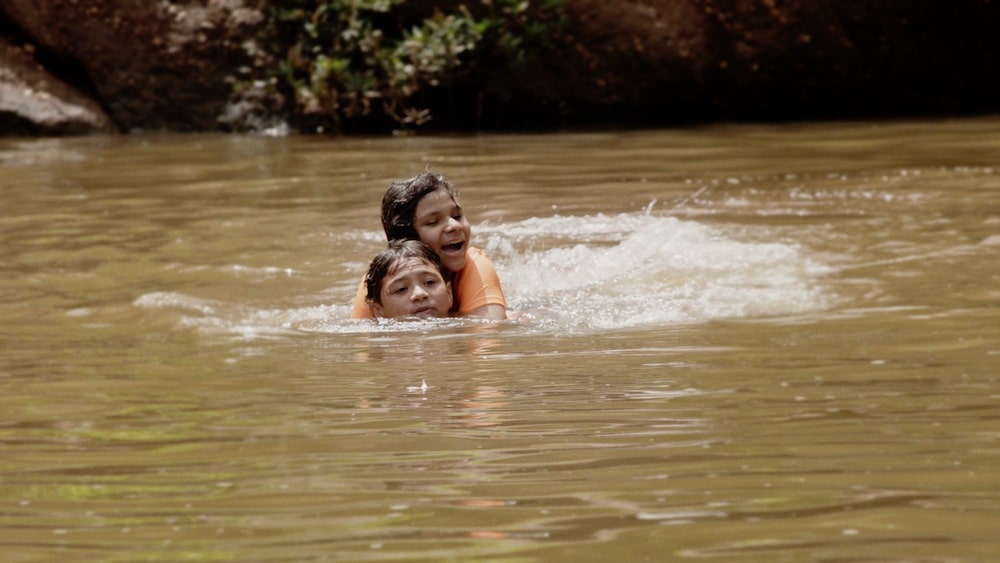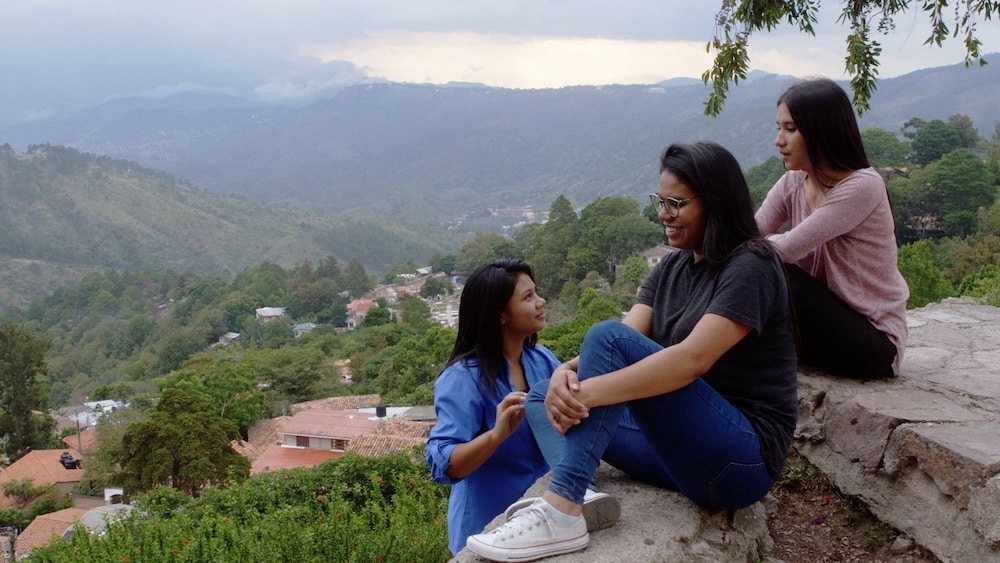“With This Light,” a documentary set to release Aug. 11 in theaters and streaming platforms, showcases the remarkable life of Sister Maria Rosa Leggol, a Franciscan sister known as the “Mother Teresa” of Honduras. Despite only having a fourth-grade education, Sister Maria Rosa established orphanages, schools, medical clinics and youth programs that impacted more than 87,000 children in Honduras.
Her work aimed to bring light and hope to children facing poverty and violence. The film highlights her apostolic dynamism, revealing her devotion and dedication to her mission. Through the stories of two young women who overcame adversity, the documentary provides insight into the profound effects of Sister Maria Rosa’s work.

The film’s message of kindness, love and transformation has resonated with audiences and even reached Pope Francis, who supported advancing Sister Maria Rosa’s cause for sainthood.
Our Sunday Visitor sat down to speak with Nicole Bernardi-Reis, co-director, and Jessica Sarowitz, the film’s executive producer, to ask a few questions about the film from a behind-the-scenes perspective.
This interview has been edited for length and clarity.
Our Sunday Visitor: How did you first hear about Sister Maria Rosa? And what was the inspiration to make the film?
Jessica Sarowitz: My family is originally from Honduras. I was born there. We moved to Chicago when I was 2 years old, and my family has always been really charitable and very social. I would, as a child, see these mysterious boxes in our basement and a lot of activity revolving around our home. All of this was because they were gathering clothing, medical supplies, food, and they would go down and do mission trips to Honduras.
And on one of the trips they took me on, when I was 8 years old, I met sister. I saw this ball of energy just running around; I mean, this is the perspective of a child. But I said, “Wow, she’s great.” And then she comes over and she gives me the wonderful hug that she gives all children. And I felt so safe and loved. I’ve always remembered that.

Years later, as an adult, as thousands have done before me, I went up to her ready to serve. And boy did she put me to work!
I started to think: We need to capture these stories, and we need to get it from Sister. How did she do this radical work of Jesus of raising over 87,000 orphaned and abandoned children? Because you don’t do it alone. You do it with God, and you do it with so many others that are contributing. So I called Nicole.
Nicole Bernardi-Reis: That was a little divine inspiration, too. I was working on a couple of projects that would have been really wonderful, but they both kind of fell through. I was feeling crushed. I literally shook my fist in the sky. And I asked for a sign. And the phone rang, and it was Jessica. And I was like, well, this is a pretty good sign.
She said, “I’ve got this amazing woman. She’s a sister. She’s helped over 87,000 children,” and I had never heard of her. And I was like, well, if I’ve never heard of this person, who else hasn’t heard of her? So Jessica and I went down to Honduras, and I met Sister, and she was everything that Jessica said and more.
Introducing Sister Maria Rosa Leggol
Our Sunday Visitor: From what I’ve heard, Sister was a bit of a controversial character. How do you introduce Sister Marie Rosa to people who don’t know her?
Sarowitz: When we began the project, we flew in, and the first thing we did was we went to Sister’s house for lunch. I walked into that dining room, which was her command center in her later years of life, as thousands of other people had before me to meet her.

She was sitting at the head of the table. She was just so human and funny and charming. And when you met her and she looked at you, it was like you were being seen for the first time. I don’t know how to describe it. It was like somebody actually saw you for who you were.
There was this amazing connection with her, and she was able to do that with everyone she met. You could tell she was a boss. She inspired all these people to come, but she was the boss, you know. People would follow her and do what she needed them to do.
A love of children
Our Sunday Visitor: What prompted Sister to begin to care for children?
Sarowitz: Sister started this work in 1964. I think a lot of people see suffering, and they want to respond to it, but they feel like they can’t make a difference, that they don’t have the resources; they don’t even know where to begin.
Bernardi-Reis: She was an orphan herself. Her mother died when she was very young. And she saw some German nuns coming to Honduras. And she asked the priest about them. He explained that they were there to help the children.
So, as a little girl, she decided to become a nun so that she could help children. And I think throughout her entire life she just kept finding ways to help. The quality that I really admired about her, and I think it touches all of us, is that you don’t need a highfalutin set of resources to get started on something. We need to believe that Jesus will reveal the way.
Sarowitz: What they say about her is that she’s the Mother Teresa of Honduras. She was a Franciscan, and you have to have this tremendous amount of faith when your coffers are sort of depleted. She would say, “I’m praying to God that an answer will come.” And then someone would come, and then she would welcome them, saying they were the answer sent by God.

Our Sunday Visitor: One of the things that Mother Teresa often did was hand out miraculous medals to basically everyone. If she had a medal, you got it. Did sister have any expressions of faith like that?
Sarowitz: It might be that prayer for an answer, that was kind of her signature. But there was also this protocol when you went and saw her that you would always go to her little chapel. You would step, and you would have a moment. And it’s a very humble, small chapel, but beautiful, beautiful because there’s beautiful light that enters in and along with the beautiful altar, you see Jesus, you see Mary.
Help from the Holy Spirit
Our Sunday Visitor: What about producing the film and the actual production side of things? Were there any significant obstacles that you faced along the way?
Bernardi-Reis: All of them. This was definitely a big leap of faith in terms of how we were going to get this done. But I think that even though documentary filmmakers often aren’t the most religious people, I think that they have to be the most faithful people on the planet. Because you start a journey to tell a story, but you have no idea what’s going to come in front of you, how it’s going to end, how long you might be filming.
We had some significant obstacles. It was difficult to film in in Honduras. There was a lot of political unrest going on when we first started filming there. We unfortunately had to cancel one shoot.
My co-director, Laura Bermudez, lives there, so we could always keep in touch with the girls. But it’s tricky, because women have a very difficult time down there. It’s not safe. We had to be able to show that, you know, and to do it in a way that was really authentic and was driven from a North American drive-by, but really to get into it so that people could understand the issues that people there face.
There was a pandemic. And hurricanes. And there were some miracles, too. We joked that the Holy Spirit probably should get an associate producer credit.
Pope’s approval
Our Sunday Visitor: How is the film being received? How are people reacting? And tell us about your meeting with Pope Francis.
Sarowitz: He was very moved after hearing Sister’s story. He saw the trailer. He laughed. There’s a scene with a soccer game, and she’s blessing the game. And then he laughs because he loves soccer, too.
And then there’s a second scene where she says, “I don’t take orders from any man on earth; I only take orders from the one above, from God above.” And he laughs at that, you know. He says, “Oh, I like her.”

Bernardi-Reis: What I love about this film is it tackles so much in 87 minutes. It’s been really exciting for me to see people from all different viewpoints react to the story. More liberal people, more conservative people who are watching the film could relate to it.
We showed the film, and there was this farmer in Kentucky who saw it, and we asked his view of it. He thought it was great that she was helping farmers. Her message of love and determination resonates with so many different people in a time when we’re so falsely divided. The fact that she can speak to all of our hearts has been really exciting to see.
Sarowitz: There’s a lot happening because, you know, everyone comes and brings their beautiful talents and wants to utilize them in service. And this is what we’re finding with this film: People want to help us in just small, little ways and it then becomes something that’s more than we could have ever dreamed would have happened.





